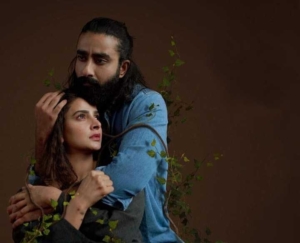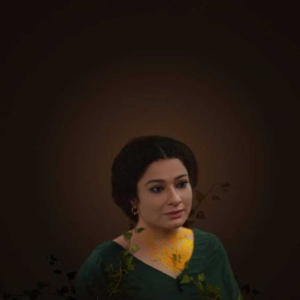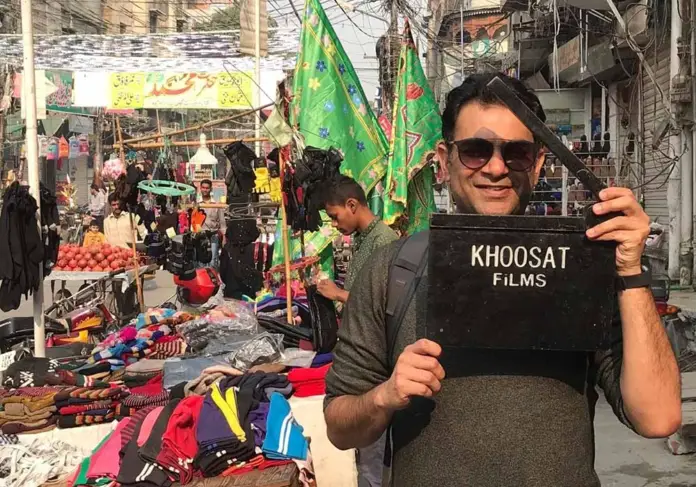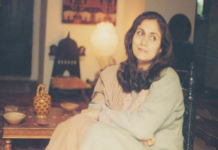Two days prior to the release of ‘Kamli’, Daily Minute Mirror sat down with the film’s director to have a short discussion on the Saba Qamar and Sania Saeed starrer. Sarmad Khoosat doesn’t like to dwell on what the film is “about”, in a way exposing his leanings towards post-modern narratives that do not adhere to a structured style of story-telling or a single theme for that matter. “It’s life as it is!” says Sarmad, adding that this is how most of the literature is.
“Stories are not always essays or public statements. They are a universe unto themselves with their respective flaws as well. Once you accept that, your characters start developing in a gripping manner and assume shades that are around us – and not necessarily nice. All the same, their resistance at seeming either black or white is what lends them their naturalness.” Coming towards ‘Kamli’ and its connection with how Sarmad sees stories as a reflection of our raw, unstructured and unpredictable lives, he says that ‘Kamli’ is an encapsulation of his emotions and experiences.
“’Kamli’ is a film that is dotted with a lot of personal details. By this, I do not mean that it carries chunks from my own life, but things that are very ‘human’, and may seem relatable to everyone out there. I would not even call them ‘issues’, but ‘things’, or ‘human things’ to keep the subtle realism intact which the film incorporates. One thing, however, which I can point out if insisted, is that it’s a female-centric film.”

Sarmad was asked if the idea to gather his ‘emotions and experiences’, as he puts it, developed over the years or was it a sudden decision, to which he responded in the following words:
“Such processes are also very erratic, I must say. At times, a moment can become the entire stimulus for you to embark upon a creative journey, but then that journey definitely has a procedure to it. Tales need their time to grow and assume a shape that appeals to all. Talking about ‘Kamli’, I had a story that I connected with; the story having been helmed by our popular actress Mehar Bano in the form of a short film. Initially I watched the film for the mere joy of it, but it stayed with me. It was then that I bought the rights to it. So the ‘stimulus’ I was talking about was this short film in the case of ‘Kamli’. We then expanded on it, with Fatima Sattar doing most of the script-writing, and we succeeded in tweaking it a lot to give it its own original touch. ‘Kamli’ passed a lot of trials, yes. We kept working on it and shaping it in a manner in which we all could love it more and more.”
Plants, animals and a landscape appearing like a third character are very much there in the trailer as well as the music videos of ‘Kamli’. However, Sarmad confesses that an equal representation of the entire ecosystem is in no way a result of an in-depth study of updated literary theory which caters to all species alike. Instead, he believes that the flora and fauna have been there with us ever-since the inception of the world, so their roles in stories have to be as natural as the roles of humans.

“The landscape came with the story itself. With the other plants and animals, I think it’s rather simpler than so complex, because they have been there ever-since the world came into being. It is something very elementary, because we humans are not the only specie that exists. Even if I talk about my own self, I have had pets at multiple points in time, as a result of which I won’t like to impose their presence on the viewers or ask them to look at them a certain way. How they perceive animals as symbolic to the story depends on their own thinking capabilities. Yes, we do have a complete, equality-driven and nuanced world with all of its species in it in ‘Kamli’, but its existence is natural and spontaneous instead of a very conscious one.”
Talking about the apprehensions that come with the release of a film on which one has worked so hard and for so many years, Khoosat said that the entire feeling is like that of awaiting an exam result.
“So many things get involved – from how the film will look on screen to how it will do as a business in which a lot has been invested. The audience can also surprise you in multiple ways. So, some of the anxiety stays even after you have given your best, because eventually everything rests on the collective feedback your work receives. Also, you have to accept that the response of the masses matters more instead of how your closed ones or colleagues look at your work. All of this combined does make you somewhat apprehensive. So, let’s see how things progress post a good response to the teasers and other social media exhibition of the film. June 3 will decide.”







